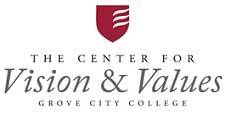By Dr. Joseph Horton


Grove City, PA –-(Ammoland.com)- Why is it that the American people rejected our troops who served in Vietnam?
We know all about the protests not only against the war, but against those who served. Why were there no demonstrations of support? Why was there no welcome home parade?
What if what we know about Americans’ lack of support for our troops in Vietnam is wrong?
Impressive evidence has been revealed showing what we thought we knew was wrong all along.
The media have a great deal of control over the events that we think about. We only know about current events that get reported. When events are omitted from the record, history is effectively changed. In the early 1970s we had only three national TV networks and a few newspapers that had a national reach. Today, the Internet is making it harder for important events to ignored. We can now read news from a vast number of outlets, both major and minor, from around the world.
The Internet is also permitting the collection and dissemination of historical material that was largely ignored outside of the local media during the Vietnam War. Americans’ patriotism did not wane during Vietnam, it was simply not widely reported. This collection of our forgotten history can be found at a new website sponsored by NCRP, the National Committee for Responsible Patriotism, a group that has been around for many years but more recently has been forgotten.
Included in this online repository is rare video of the third longest parade in U.S. history. That parade was called the “Support Our Men In Vietnam Parade.” This parade lasted nearly nine hours, through the heart of New York City. There were approximately 250,000 people, including 15,000 Teamsters, 10,000 Longshoreman and 6,000 union carpenters. Vast numbers of young people can be seen marching. The parade was reported locally in New York, but not nationally.
This enormous parade was not the only event in support of our troops in New York. On March 31, 1973, “Home With Honor Day” was celebrated at a parade with more than 150,000 people. There were 1,000 soldiers at the head of the parade. At the end of the parade route the troops sat in grandstands and were thanked and celebrated by the marchers. To be sure that it could never be said that our troops came home with no brass bands to welcome them, 100 brass bands were in the parade.
Again, there was no national press coverage.
Yes, there were people who protested the war. It is true that many returning soldiers were treated abominably and disrespectfully at the airport when returning from Vietnam. Our returning soldiers returned home as individuals rather than in units and almost always passed through one of three airports: Seattle, San Francisco, or Los Angeles. Because individual soldiers could be harassed more easily than a group and only three airports needed to be staffed by protestors, the despicable acts against our men in uniform were committed by a relatively small group of people who not only opposed the war but America and its values as well.
The behavior of a small group of radicals in no way represents the American people!
Indeed many typical Americans went out of their way to show support. In 1967, during the weekend of October 21, as part of “Operation Gratitude,” there were demonstrations in support of our soldiers in at least 75 cites. The demonstrations in support of our troops were essentially ignored by the media. In a nine-page story about a group of anti-war protestors, Time magazine had one sentence about the demonstrations of support.
It also turns out that the popular image of Vietnam veterans as emotionally unstable, chemically dependent, and unsuccessful turns out to be false. On average, Vietnam vets have better mental health and are more successful than non-vets from the same era.
The media have great power to determine which events we are aware of and which we are not. This is the power to shape history. Blessedly, the Internet is making it easier to have a broader awareness of events both present and past.
Thank you, Vietnam vets! You are loved, appreciated, and respected by the American people. Likely you were loved, appreciated, and respected more than you knew. It is time to fully correct this historical ignorance and give our Vietnam vets the heritage they deserve.
—Dr. Joseph J. Horton is professor of psychology at Grove City College and the Working Group Coordinator for Marriage and Family with The Center for Vision & Values. He is also a researcher on Positive Youth Development.
